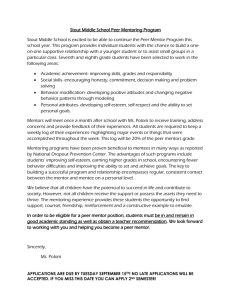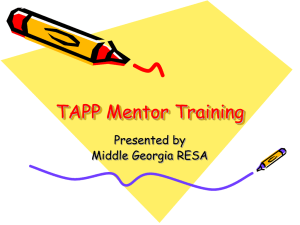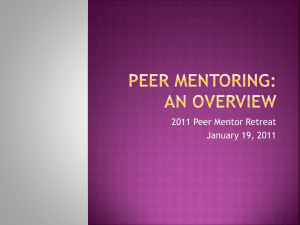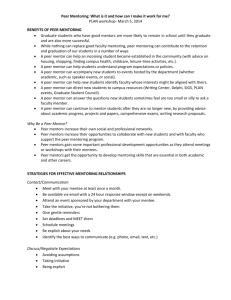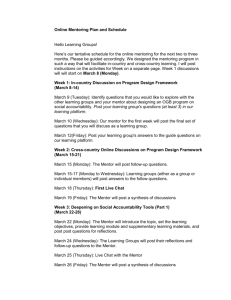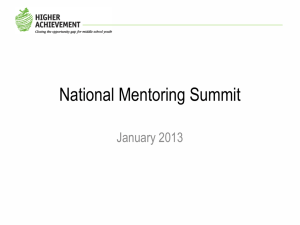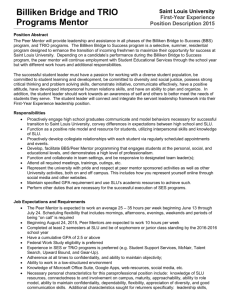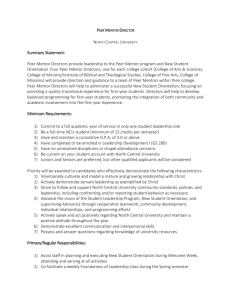Addressing the Gaps between Training and Practice- South
advertisement
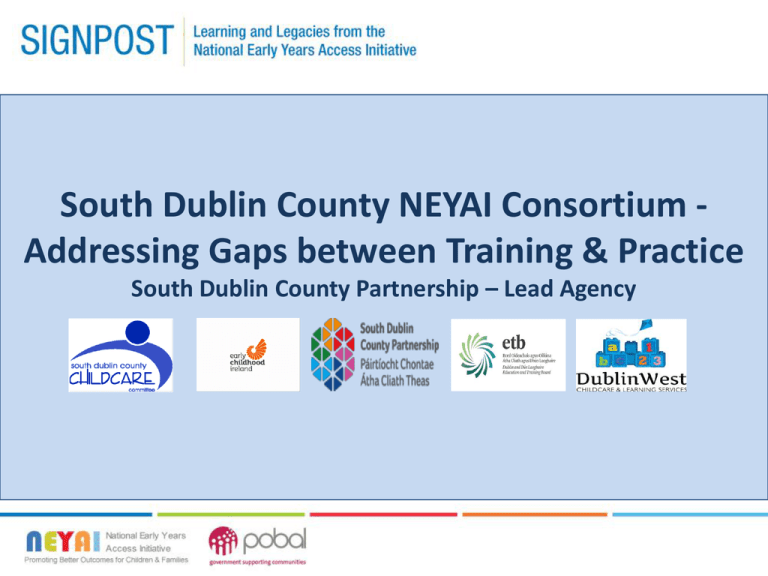
South Dublin County NEYAI Consortium Addressing Gaps between Training & Practice South Dublin County Partnership – Lead Agency Why 1995 1996 HSE Regs 2000 EOCP 2007 2010 Transition EOCP CCSS ECCE CCS 2006 2008 2010 Siolta CCSS NEYAI HSE Regs P. National Standards Rationale • Practice based training and work experience • Training Survey • 64% or n=48 staff have minimum standard of education FETAC 5; • 87% completed work placement (majority 2 weeks) • 71% reported that the manager supervised their work placement • 63% stated they worked beside another staff member who observed their practice and provided feedback • 57% did not have visits from the training agency Partners • Key Early Years Stakeholders, SDCP, SDCC, ECI, DDETB: • • • • Young Explorers Pre-school, St. Mary’s Community Childcare Tallaght Childcare Centre, Dublin West: – – – – Beechtree, Limetree, Kozy Kids pre-school St Ronans Playgroup; • Areas of significant socio – economic disadvantage; • 75 staff, 411 children; Action Mentoring Process • Building trust relationships • Observing and self assessing • Starting with non threatening interventions Pre Development Planning and Agreement • Service Specific Action plans • Service level Agreements • Negotiating how and who will be supported •Work Plans •Actioning agreed service specific work plans, setting goals, using ITERs & ECERs •Mentoring Tools •Use of a variety of tools – room observations, modeling, group and one to one facilitation, review sessions with managers, use of video feedback and review of practice with staff; •Review and reinforcement of input to staff to embed, to amend or redirect; • Role of Mentor in Programme •75% onsite in services •Linking and informing other project work professional development, work placement model, parent and • Creating spaces for learning • Peer Network/Expert Group •Accessing appropriate external training ; Implementation Mentoring Approach • Using A Common Framework - ITERs/ECERs - Siolta and Aistear, Hanen – making it meaningful theory to practice; • Phased approach – related to readiness to engage – relationship building critical for buy-in but ongoing process; • A one size fits all approach to delivery of support may not meet the needs of each service – start at where people can and WANT to engage; • Small gains greater dividend; • Facilitative – allowing staff/services to direct their learning and professional development; ( use of video significant); • Creating a spaces for learning – The Peer Group and Expert Group; • Mentoring the mentor – ongoing professional development; Project Evaluation Findings Project Evaluation Findings •Statistically significant increases in all subscales were observed across time •Largest effect size observed in the subscale Interactions, along with language and reasoning; In addition – staff survey indicated: •89% staff stated participation – positive impact on practice •85% reported that working with a mentor was beneficial to their development as early years professionals Emergent Learning - Mentoring • • Practice based experience: practical skill set + knowledge + confidence ‘Art’ of bringing people on board: • • • Un-intrusive on site presence which gradually builds trust, respect and growth of learning Flexible approach – not a one size fits all Mentor as ongoing learner • • Review and refine Supervision – ‘Mentor the Mentor’ - Broad knowledge base or a separate parallel process? HR, Leadership/management, Corporate governance, Organisational change Emergent Learning - Change • Voluntary engagement essential = genuine buy in • Readiness for engagement and change? • Effecting change at what level? - • Staff practice level Management/Leadership level Board /Owner level Whole company Realistic time line for change - 18mths – 3 years – 5 years Emergent Learning - Quality • A consensus on quality and making it tangible - Use of standardised tools - shared language - Evidencing quality through video feedback, role modelling and peer to peer exchanges • Continuous professional development - Peer to peer onsite and off site for managers - Staff support and supervision and leadership training - Board buy in – reflect where possible in policies • Non – Contact time - Challenges to deliver v’s benefits - Board/owner buy in - Funders buy in • Role of board or off site owners in quality - How to engage? Role of a Mentor in working with board/owners - Boundaries and who is mentor’s key stakeholder South Dublin County NEYAI - Legacy • Informing the Mainstream – Consortium Submission to Departments on the National Early Years Quality Support Service – Influence local Area Based Poverty Initiative – An Implementation Guide for Quality Mentoring – A Proposed Model of Workplace Learning for Early Years Students • Peer Group Network - South Dublin County Childcare Committee • Improved quality in 7 Early Years Services South Dublin County NEYAI - Legacy
